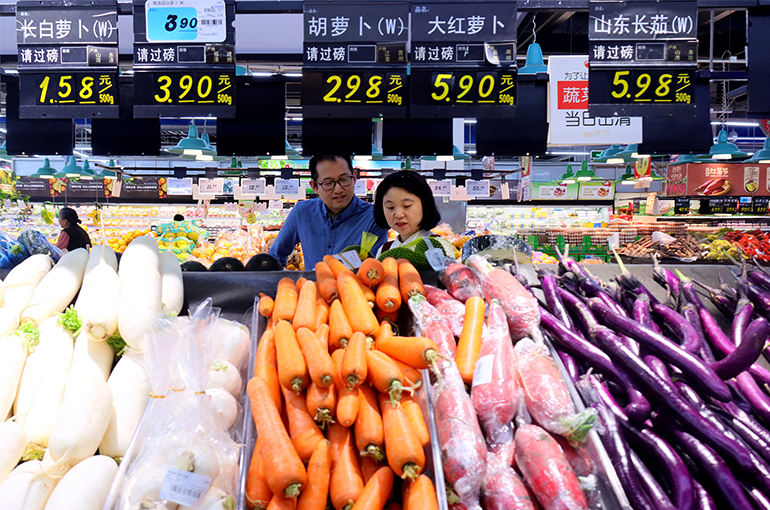 China's Inflation Rate Eases to 0.2% in November
China's Inflation Rate Eases to 0.2% in November(Yicai) Dec. 9 -- China's consumer inflation rose last month but at a slower pace than in October, mainly because of unexpectedly high temperatures and low travel demand.
The consumer price index inched up 0.2 percent in November from the same period last year, compared with a 0.3 percent growth the previous month, according to data released today by the National Bureau of Statistics.
China's average temperature last month was the highest since 1961, which impacted the production, storage, and transportation of agricultural products, said Dong Lijuan, a chief statistician at the NBS.
Pork and fresh vegetable prices rose 13.7 percent and 10 percent, respectively, last month from a year earlier, down from 14.2 percent and 21.6 percent the previous month, NBS data also showed.
Food prices may stabilize or slow their growth with the arrival of winter and the new year, Fu Linghui, spokesperson of the NBS, said a few days ago. As the economy recovers and rebounds, the CPI will continue to rise and services' demand and prices will keep increasing, he added.
In the first 11 months of the year, the CPI jumped 0.3 percent from the same period last year, according to NBS data.
Factory-Gate Prices
The producer price index, which measures the cost of goods at the factory gate, plunged 2.5 percent in November from a year earlier, versus a decline of 2.9 percent in October, according to the NBS.
The recovery of demand buoyed by supportive policies will likely narrow the decline in PPI, which is facing constraints because of slow global economic growth momentum, sluggish domestic real estate market, and supply-demand imbalances, said Wu Chaoming, deputy director of the Chasing International Economic Institute.
In the 11 months ended Nov. 30, the PPI plunged 2.1 percent from a year ago, NBS data showed.
It is expected that the PPI will continue to decline this month, logging a total drop for this year of about 2.2 percent, Wu pointed out.
The narrowing PPI decline in November from a year earlier fully reflects that policies are boosting companies' and households' confidence, Pang Ming, chief economist at Jones Lang LaSalle China, told Yicai. Domestic consumption and investment demand has achieved a more stable and faster recovery momentum, he noted.
Editor: Futura Costaglione